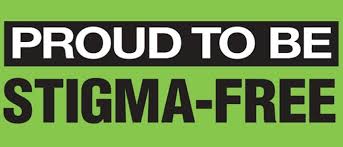Stormwater & Stormwater Pollution
Stormwater
Stormwater, resulting from rain and snow, is the source of fresh water that feeds our streams, rivers, lakes and underground aquifers.
As a water source, stormwater must be clean and in good supply to protect our drinking water supplies, and preserve streams and lakes for human recreation and wildlife habitat. How we use land directly affects the way stormwater flows. Under undisturbed conditions, over half of precipitation infiltrates the soil and only about 10 percent runs off the surface.
Natural vegetation acts like a sponge and a filter, slowing the flow and cleaning the stormwater. Roads, pavement and buildings (impervious surfaces) reduce the area where stormwater can soak into the soils to replenish water supplies. This means less water recharges underground aquifers, making them unable to keep up with the amount wells pump out.
Impervious surfaces also cause problems with our lakes, rivers and oceans. Less water infiltration means more water flowing on the surface. Roadways and storm sewers act like superhighways for stormwater, speeding its flow. So much water flowing more quickly results in greater and more frequent flooding. It causes erosion, eating away the banks of rivers and streams.
Stormwater also carries pollution. As water flows across land, it picks up all sorts of contaminants - litter, pesticides, fertilizer, pet wastes, petroleum products, and road salts. The increased volume and speed of stormwater runoff from paved surfaces wash more of these pollutants into water bodies. This can cause fish kills, force beach closings and degrade recreational areas.
Residents can reduce the amount of stormwater that runs off their properties by reducing the amount of lawn and pavement; planting groundcover; planting trees; creating gardens, no mow areas, meadows; separating pavement from other hard surfaces with a vegetated border; and watering lawns only if necessary.
Residents can help reduce pollution in runoff by keeping a buffer along any stream on the property; avoiding use of pesticides; composting leaves and grass clippings; taking hazardous substances to a proper disposal repository; preventing objects or fluids from draining into storm-water grates or inlets.
Storm Water Pollution
A Guide to Healthy Habits for Cleaner Water
Pollution on streets, parking lots, and lawns is washed by rain into storm drains, then directly to our drinking water supplies and the ocean and lakes our children play in. Fertilizer, oil, pesticides, detergents, pet waste, and grass clippings: You name it and it ends up in our water.
Storm water pollution is one of New Jersey's greatest threats to clean and plentiful water, and that's why we're all doing something about it.
By sharing the responsibility and making small, easy changes in our daily lives, we can keep common pollutants out of storm water. It all adds up to cleaner water, and it saves the high cost of cleaning up once it's dirty.
As part of New Jersey's initiative to keep our water clean and plentiful and to meet federal requirements, many municipalities and other public agencies including colleges and military bases must adopt ordinances or other rules prohibiting various activities that contribute to stormwater pollution. Breaking these rules can result in fines or other penalties
Clean up after your pet
Many municipalities and public agencies must enact and enforce local pet-waste rules. An example is requiring pet owners or their keepers to pick up and properly dispose of pet waste dropped on public or other people's property. Make sure you know your town's or agency's requirements and comply with them. It's the law. And remember to: Use newspaper, bags or pooper-scoopers to pick up wastes. Dispose of the wrapped pet waste in the trash or unwrapped in a toilet. Never discard pet waste in a storm drain.
Limit your use of Fertilizers and Pesticides
As a resident, business, or other member of the New Jersey community, it is important to know these easy things you can do every day to protect our water.
- Do a soil test to see if you need a fertilizer
- Do not apply fertilizers if heavy rain is predicted.
- Look into alternatives for pesticides.
- Maintain a small lawn and keep the rest of your property or yard in a natural state with trees and other native vegetation that requires little or no fertilizer.
- If you use fertilizers and pesticides, follow the instructions on the label on how to correctly apply it.
Dispose of Yard Waste Properly
- Keep leaves and grass out of storm drains.
- If your municipality or agency has yard waste collection rules, follow them.
- Use leaves and grass clippings as a resource for compost.
- Place litter in trash receptacles.
- Recycle. Recycle. Recycle.
- Participate in Community Cleanups.
Keep Pollution out of Storm Drains
Municipalities and many other public agencies are required to mark certain storm drain inlets with messages reminding people that storm drains are connected to local water bodies. Do not let sewage or other wastes flow into a storm water system.
Properly Use and Dispose of Hazardous Products
- Hazardous products include some household or commercial cleaning products, lawn and garden care products, motor oil, antifreeze, and paints.
- Do not pour any hazardous products down a storm drain because storm drains are usually connected to local water bodies and the water is not treated.
- If you have hazardous products in your home or workplace, make sure you store or dispose of them properly.
- Read the label for guidance.
- Use natural or less toxic alternatives when possible.
- Recycle used motor oil.
- Contact your municipality, county or facility management office for the locations of hazardous-waste disposal facilities.
Contact Information
Form more information on storm water related topics, visit www.cleanwaternj.org. Additional information is also available at U. S. Environmental Protection Agency Web sites https://www.epa.gov
New Jersey Department of Environmental Protection
Division of Water Quality
Bureau of Non-point Pollution Control
Municipal Storm Water Regulation Program
(609) 633-7021





